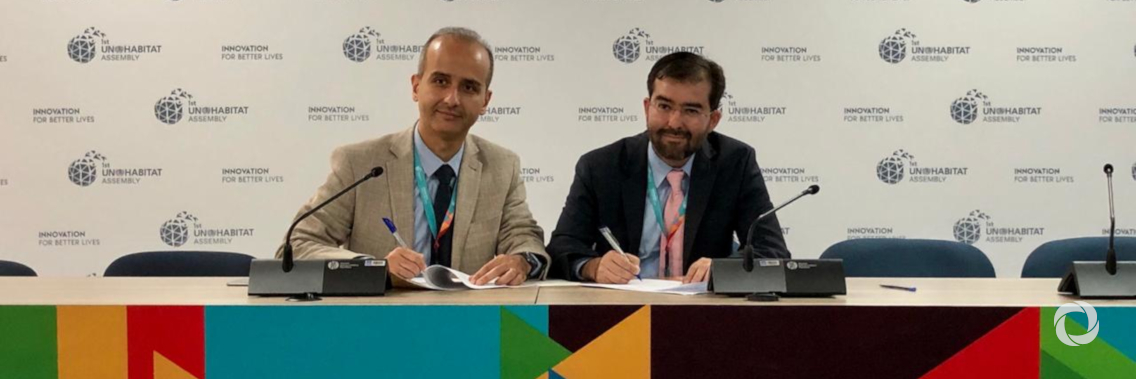UN-Habitat, World Green Building Council and Chatham House signed an MoU during the 1st UN-Habitat Assembly to develop a regional agenda for sustainable recovery, regeneration and reconstruction for the Arab region.
The MoU will lay the groundwork for a regional agenda for sustainable recovery, regeneration and reconstruction in which the re-built environment contributes to healthy, resource-secure and climate-resilient societies. This regional agenda will be aligned with principles of sustainable development and build back better anchored in the UN Agenda for Sustainable Development 2030, the New Urban Agenda, the Sendai Framework for Disaster Risk Reduction, the Paris Agreement and other global agendas.
Research into past experience, local cultural practices, and inspiring adaptive examples will be coupled with intensive cross-sector dialogue to develop geographically appropriate principles and actionable guidelines for sustainable post-conflict reconstruction in Arab cities.
Urban areas and essential infrastructure across Syria, Iraq, Yemen, Libya and Gaza have suffered large-scale damage and destruction due to multiple, recent and on-going conflicts. These countries also face severe levels of water stress and environmental degradation overlaid by climate change. Extreme temperatures coupled with lack of access to power are already exacerbating inequalities across the region. Reconstruction is already taking place and is likely to do so largely in a vacuum of environmental regulation, reducing countries’ long-term prospects for the inclusion of returnees, social stability and economic recovery.
At present, there is no guidance specifically tailored to reconstruction and regeneration for resource and climate resilience in the MENA, although these aspects will be fundamental to long term peace, stability and inclusive economic growth.
In this respect, UN-Habitat, WorldGBC and Chatham House agreed to sign an MoU to join forces to develop a regional agenda for sustainable recovery, regeneration and reconstruction for the Arab region in which the re-built environment contributes to healthy, resource-secure and climate-resilient societies.
Original source: UN-Habitat
Published on 30 May 2019

